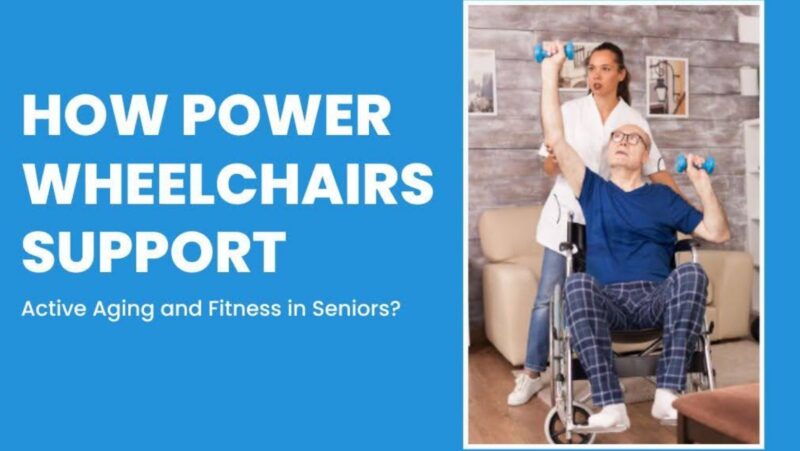
L-theanine, a naturally occurring amino acid found primarily in green and black tea leaves, has been gaining attention for its potential benefits in managing symptoms of Attention Deficit Hyperactivity Disorder (ADHD) in children.
ADHD is a neurological disorder characterized by problems with focus, hyperactivity, and impulsiveness which can significantly affect a child’s ability to learn and interact socially.
Given the challenges associated with conventional ADHD medications, including side effects and the desire for natural treatment options, L-theanine presents a compelling alternative.
Therefore, below, we’ll explore what it is and detail how it might benefit children with ADHD.
Understanding L-Theanine
L-theanine is an amino acid that’s not commonly found in the diet, unlike other amino acids that are constituents of proteins. It is known for its unique ability to cross the blood-brain barrier, which allows it to affect the brain directly. In the world of nutritional supplements, L-theanine is praised for its calming effects without causing drowsiness.
It achieves this by influencing levels of certain neurotransmitters, including serotonin and dopamine, which play key roles in mood regulation, alertness, and relaxation. This balancing act on neurotransmitters is what makes L-theanine particularly interesting for managing symptoms of ADHD. Follow this link for more relevant information: https://www.romper.com/life/what-is-l-theanine-child-adhd-anxiety.
Enhancing Focus and Attention
One of the core challenges for children with ADHD is maintaining focus and attention on tasks. L-theanine has been shown to increase alpha brain wave activity, a sign of relaxed mental alertness. This state is particularly conducive to learning and concentration, allowing children to focus better in classroom settings or during homework.

Research suggests that when this supplement is taken regularly, it can help smooth out the peaks and valleys of attention, typical of ADHD, leading to a more balanced attention span without the overstimulation that can come from more potent stimulant medications.
Reducing Hyperactivity and Improving Sleep
Hyperactivity can be exhausting not just for the child but also for parents and teachers. L-theanine’s ability to induce a state of calm relaxation can help moderate this aspect of ADHD. The calming effect does not result in sedation, unlike many anti-anxiety treatments, meaning that children can remain alert and engaged while feeling less compulsively active.
Additionally, sleep problems, which are often reported in children with ADHD, can also be alleviated by L-theanine. Better sleep can lead to improvements in overall mood and behavior, which are often challenges for children with ADHD. You have to check out this page for more information!
Minimizing Anxiety and Stress
Children with ADHD often experience higher levels of anxiety and stress, which exacerbate their symptoms. L-theanine has been studied for its role in reducing psychological and physiological stress responses.

By enhancing the body’s ability to handle stress and possibly lowering anxiety levels, this supplement can help children with ADHD react more calmly in situations that may otherwise trigger a stress response. This can be particularly beneficial in a school environment where academic and social pressures can create significant stress.
Safety and Side Effects
One of the most appealing aspects of L-theanine for parents is its safety profile. Studies have shown that L-theanine is generally well tolerated by children and doesn’t lead to the same range of side effects associated with traditional ADHD medications, such as appetite suppression or insomnia.
This makes it a viable option for long-term use, providing a gentle but effective means of managing symptoms. However, as with any supplement, it’s important to consult with a healthcare provider before starting L-theanine, particularly because children with ADHD often take other medications.
Integrating It into Daily Routines
Introducing L-theanine into a child’s daily routine can be quite easy. It’s pretty much available in various forms, including tablets, capsules, and even as a powder that can be dissolved in water or juice. The subtle flavor and ease of administration can make it easier for children to take compared to some other supplements and medications.
When considering dosage, it’s important to follow the guidance of a healthcare provider, as the optimal amount can vary based on the child’s specific needs and circumstances.
Supporting Cognitive Function
Beyond just alleviating symptoms, L-Theanine for children has been shown to support overall cognitive function, which can be particularly beneficial for those who often struggle with executive function skills.
These skills include task initiation, organization, planning, and task switching, which are crucial in both academic and social settings. By improving attention and reducing anxiety, L-theanine helps create a more favorable cognitive environment for learning and interaction.
Research indicates that it can synergistically enhance the effects of other natural substances like caffeine—commonly found in green tea—where it helps maintain alertness and focus while mitigating the jitteriness and agitation that caffeine can cause.
For children with ADHD, this means that this supplement could potentially help maintain steady concentration levels without the overstimulation risks that traditional stimulant medications might pose.
Balancing Neurotransmitters
L-theanine’s impact on neurotransmitters provides another layer of support for children with ADHD. By increasing levels of GABA (gamma-aminobutyric acid), serotonin, and dopamine, L-theanine helps regulate emotions, mood, concentration, alertness, and sleep—areas often problematic for those with ADHD.
GABA, in particular, plays a critical role in calming nervous activity, which can help control impulsiveness—a common challenge for children with ADHD.
Improving Social Interactions
Children with ADHD sometimes find social interactions challenging due to their impulsivity and hyperactivity, which can lead to difficulties in making and maintaining friendships. L-theanine’s calming effect can reduce impulsivity and hyperactivity, potentially leading to better social interactions.
By helping to moderate their responses and behavior, L-theanine can make social settings less overwhelming and more manageable for children with ADHD, thereby improving their social skills and relationships.
Dietary Sources and Integration
While supplements are a common way to incorporate L-theanine into a child’s regimen, it is also possible to increase intake through dietary sources, primarily tea. However, it’s important to consider that teas contain caffeine, which can affect some children negatively.

Decaffeinated green teas or L-theanine-fortified foods might be a better option for those sensitive to caffeine. Encouraging a diet that includes these elements can be a natural adjunct to therapy, promoting a routine that supports calmness and concentration. Discover more by checking out this link: https://health.clevelandclinic.org/l-theanine.
Collaborative Care Approaches
You should also be aware that integrating L-theanine into a child’s ADHD management plan should be part of a broader, collaborative approach that includes feedback from educators, healthcare providers, and therapists. This team effort ensures that all aspects of the child’s health and educational needs are addressed.
Working with a healthcare provider can also help monitor the efficacy of L-theanine as part of the treatment plan, adjusting dosages or strategies as needed based on the child’s response.
Do I Need to Talk to a Doctor Before Giving My Child L-theanine?
Yes, it’s essential to consult with a healthcare provider before giving this supplement to your child. Here’s why this consultation is crucial:
Safety
A healthcare provider can assess whether L-theanine is safe and appropriate for your child to use. They will consider your child’s age, overall health, current medications, and specific health conditions. This is particularly important because children’s bodies process substances differently from adults, and what is safe for one age group might not be for another.
Dosage Information
Determining the correct dosage for a child can be challenging, as it can vary based on the child’s weight, health status, and the presence of any symptoms or conditions. A healthcare provider can recommend the appropriate dosage to ensure effectiveness while minimizing the risk of side effects.
Interactions with Medications
L-theanine could potentially interact with other medications your child is taking. A healthcare provider can review your child’s current medications to ensure there are no risks of adverse interactions. This is crucial for maintaining the safety and well-being of your child, especially if they are on medications for other conditions.
Monitoring Response
A healthcare provider can guide you on what to observe once your child starts taking L-theanine. They can provide advice on monitoring the effectiveness of the supplement and identifying any potential side effects. This ongoing monitoring is important to ensure the supplement is achieving the desired outcomes without negative impacts.
Comprehensive Care
Consulting with a healthcare provider helps integrate the supplement into your child’s overall care plan. L-theanine is often just one part of managing conditions such as ADHD or anxiety. A healthcare provider can coordinate this with other treatments your child may be receiving, ensuring a holistic approach to their health.
A Few Final Words
While L-theanine is not a cure for ADHD, its potential to moderate symptoms such as inattention, hyperactivity, and anxiety makes it a valuable tool in the management of the disorder. With its excellent safety profile and non-sedative nature, it offers a natural alternative to traditional medications, helping to improve focus, reduce stress, and contribute to better overall emotional balance for children with ADHD.
For parents exploring options to support their child’s health and well-being, L-theanine merits consideration as part of a comprehensive approach to managing ADHD.











